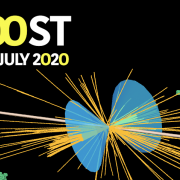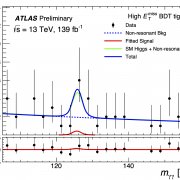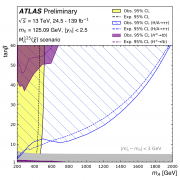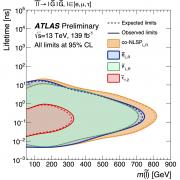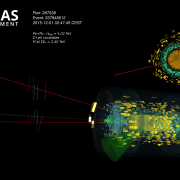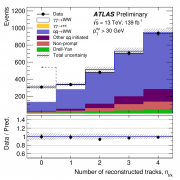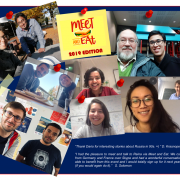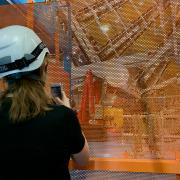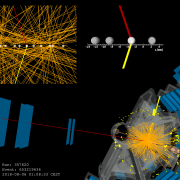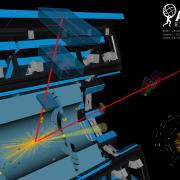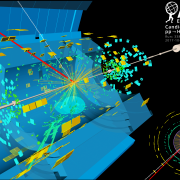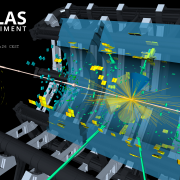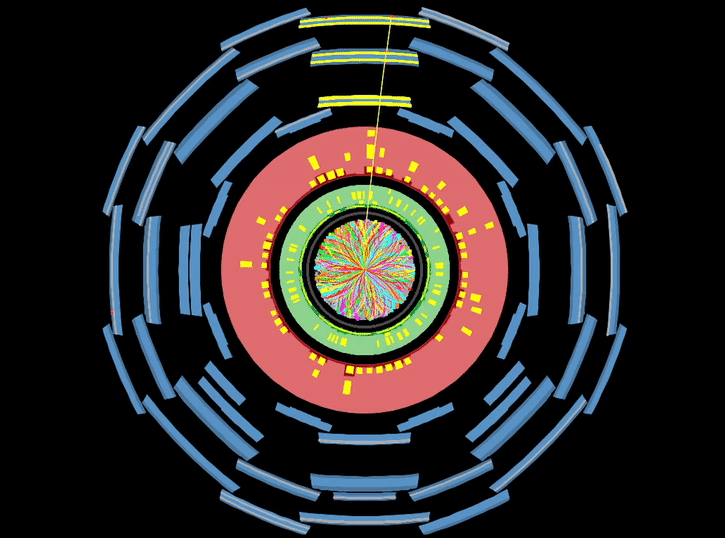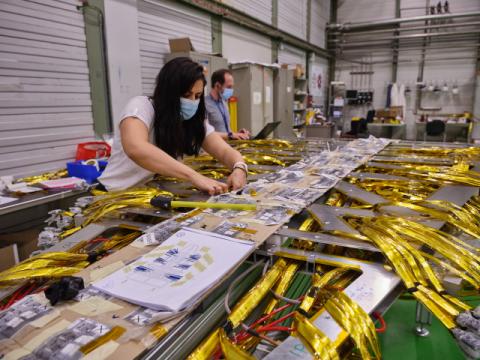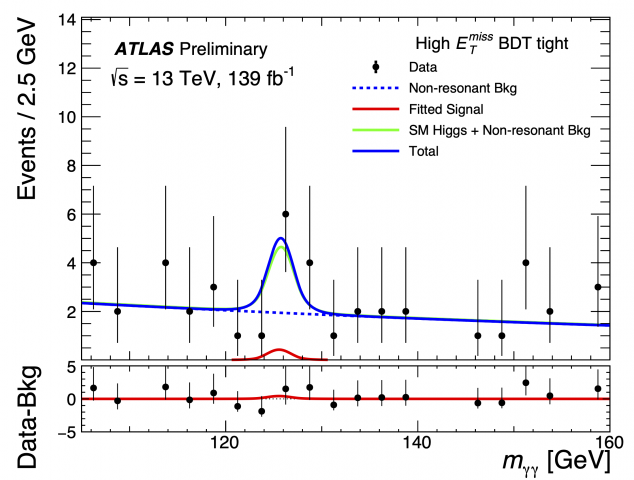Access to Collaboration Site and Physics Results
Updates tagged: “EXOT group”
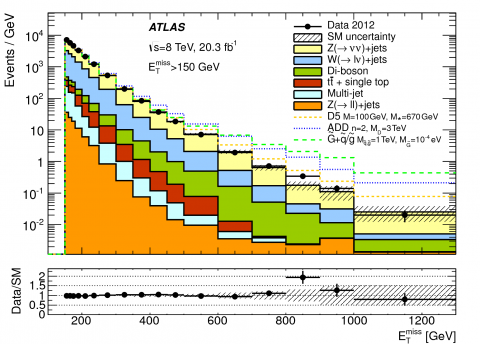
Looking at the Dark side of Matter
The search continues for dark matter, a new kind of matter that doesn’t emit or absorb light. It is assumed to account for the missing amount of mass in our Universe. The total mass in our Universe can be inferred from the observation of gravitational effects of stars in galaxies, and galaxies in clusters of galaxies. However the amount of mass calculated from the observed distribution of light is much less. It is proposed that dark matter makes up the discrepancy as it does not emit light.
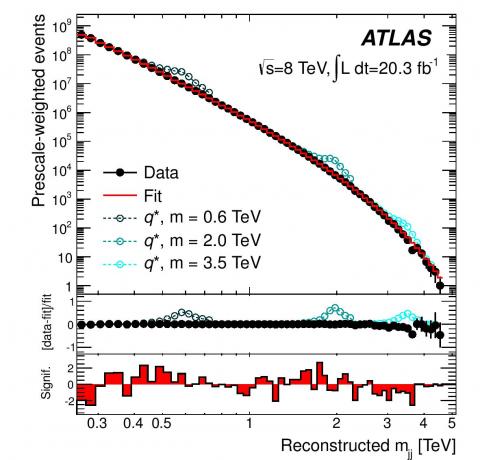
Are quarks fundamental particles?
From decades of discoveries made at particle colliders, we know that protons are composed of quarks bound together by gluons. We also know that there are six kinds of quarks, each one with its associated antiparticle. But are quarks fundamental? ATLAS searched for signs that quarks may have substructure in its most recent data, collected from the LHC’s proton-proton collisions in 2012.

Quark Excitement: Is there anything smaller?
The Large Hadron Collider commands many superlatives. One of the most useful of these is that the LHC is our planet's most powerful human-built microscope. The higher the collision energy, the tinier the distances you can study.

Moriond day 1: The outer limits
Not many trips take you to all ends of the world in one day, but that was nevertheless how it felt after the first talks at Moriond. Sunday and Monday have mainly featured presentations on neutrino and dark matter physics. Many of these experiments are placed in remote regions or deep under ground.
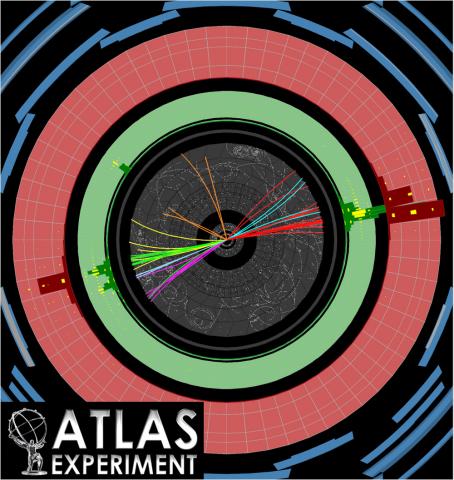
A Search for New Physics Processes using Dijet Events
The ATLAS Experiment has extended the energy frontier of searches for new particles and new processes beyond those of the Standard Model by studying collision events with so-called "dijets".
Pages
- « first
- ‹ previous
- 1
- 2
- 3





